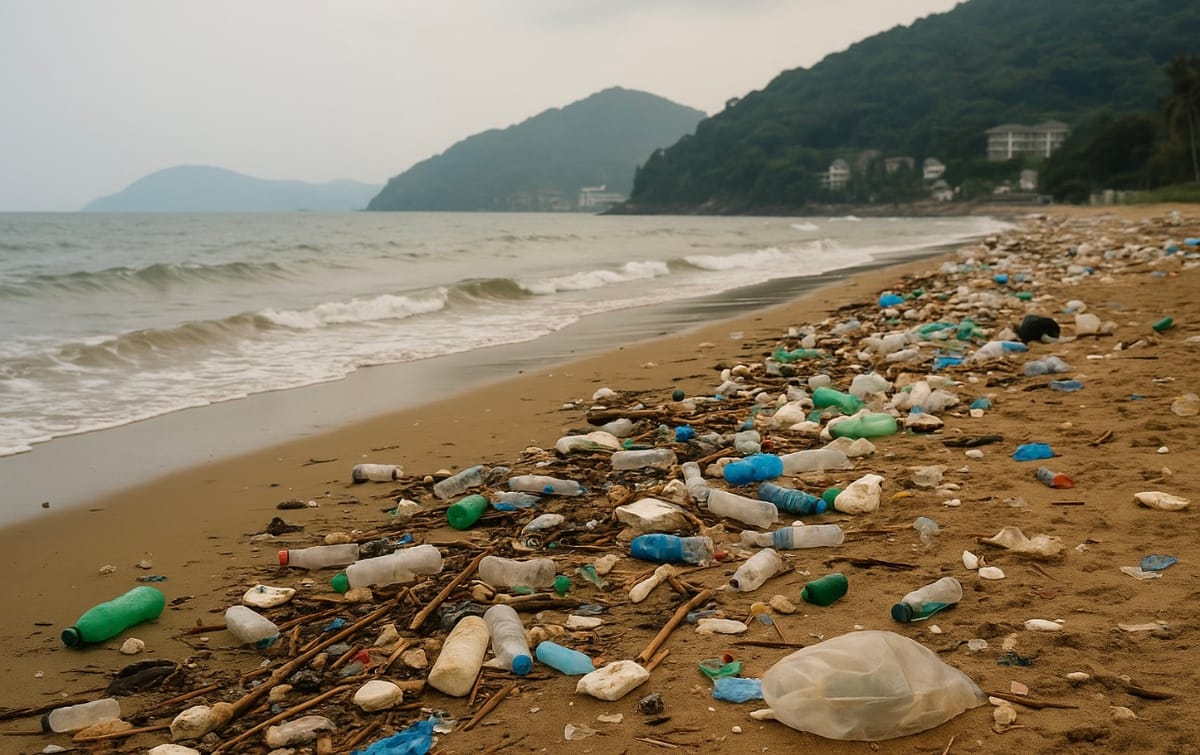World Environment Day 2025: Global Fight Against Plastic Pollution
World Environment Day 2025 focuses on ending plastic pollution, driving global action and real solutions for the planet’s future.

World Environment Day 2025 marks a crucial moment for the world to unite in the fight against plastic pollution. Celebrated every June 5th, this year’s theme, “Beat Plastic Pollution,” resonates worldwide with the Republic of Korea as the host nation. The United Nations Environment Programme (UNEP) highlights a staggering fact: over 14 million tons of plastic waste enter the oceans every year, threatening ecosystems, human life, and the future of the next generation.
Rising Plastic Pollution Crisis
The latest UNEP data estimates that 19 to 23 million tons of plastic pollute rivers, lakes, and oceans annually. This situation not only damages the environment but also endangers human health. Microplastics have now been found in drinking water, food, and even in breast milk and human tissue. Plastic pollution has become a real threat, degrading ecosystems and lowering the quality of life globally. If left unaddressed, plastic leakage into the environment is predicted to rise by 50% by 2040.
Republic of Korea Leads by Example
As the host country, South Korea underscores its commitment to tackling plastic pollution. The government of Jeju Province aims for a plastic pollution-free region by 2040. Several revolutionary policies have been adopted, including household waste separation, a ban on single-use plastics in supermarkets, and a return program for disposable drink cups. These steps are concrete examples of the transition towards a sustainable circular economy and can serve as a global benchmark (UNEP).
Global Negotiations: Seeking Legal Solutions
Since 2022, over 170 countries have been negotiating to create a legally binding international agreement to end plastic pollution. However, the process is full of challenges. The fifth meeting in Busan in November 2024 ended in a stalemate, mainly due to differences between oil-producing nations and those supporting a reduction in plastic production. Nevertheless, negotiations are set to continue and remain a focal point of the 2025 global agenda, showing the crucial need for international collaboration
Concrete Actions in Many Countries
This year’s World Environment Day momentum spurred various real initiatives in different countries. In India, the Tide Turners Plastic Challenge program involved millions of young people to reduce plastic waste in their communities. Meanwhile, Mexico launched a National Strategy for Beach Clean-Up and Marine Conservation. In major world cities, awareness campaigns are being carried out in airports and metro stations to raise public concern about the dangers of plastic pollution.
Future Solutions and Innovation
Long-term solutions are the focus for many nations. Programs like the One UNEP Plastics Initiative and the Global Plastics Hub have been developed to provide data and analytical tools for evidence-based policy-making. The circular economy approach forms the backbone of solutions, with efforts to redesign products so they can be recycled and reused, rather than discarded after a single use.
The Role of Individuals and Collaboration
Individual action matters. People can contribute by reducing the use of single-use plastics, choosing environmentally friendly products, and spreading awareness about the dangers of plastic pollution. Simple actions such as carrying a reusable water bottle, using cloth shopping bags, and sorting waste help reduce the burden on the environment.
A Call from World Leaders
UN Secretary-General António Guterres, in his speech, stressed that plastic pollution has reached even the planet’s remotest corners, calling for immediate and collective action. UNEP Executive Director Inger Andersen emphasized that ending plastic pollution is a moral imperative to protect human health and the global economy.





Comments ()